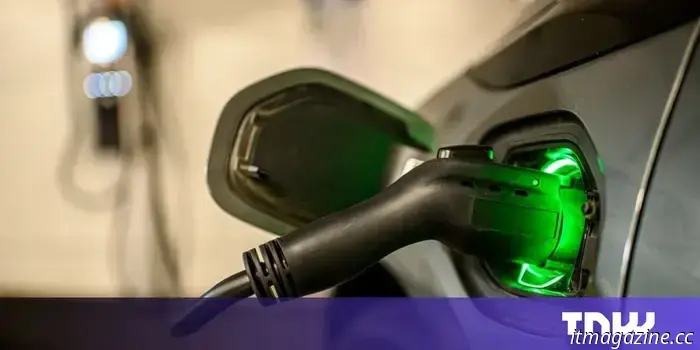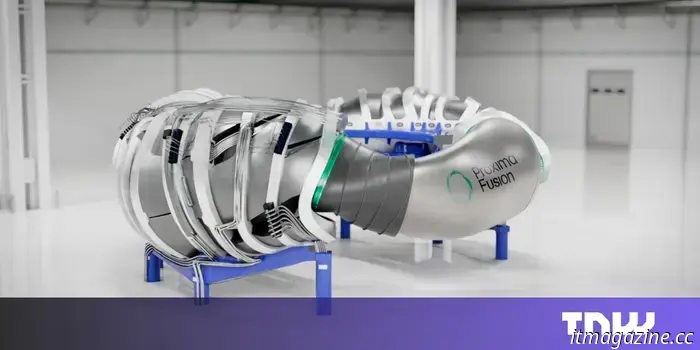
'Electrotech' has the potential to end Europe's dependence on fossil fuel imports.
A new report suggests that Europe could significantly reduce its dependence on imported fossil fuels by implementing electricity-based technologies. Electric vehicles, heat pumps, and renewable energy sources could decrease global reliance on imported fossil fuels by 70% when employed in transportation, heating, and electricity generation, according to the energy think tank Ember. This transition could save importers an estimated $1.3 trillion (€1.14 trillion) globally each year. Ember refers to these three technologies collectively as "electrotech."
Reducing dependence on US and Russian fossil fuels
The full-scale invasion of Ukraine by Russia in 2022 highlighted one of Europe's key vulnerabilities: its dependence on imported fossil fuels to power its vehicles, heat its buildings, and support its industries. Three years later, Europe remains reliant on foreign oil and gas supplies, with several European nations relying heavily on these imports for their primary energy needs. Countries such as Italy (77%), Spain (74%), Germany (67%), and France (51%) are particularly affected, according to Ember.
Kingsmill Bond, an energy strategist at Ember, remarked, “Fossil-importing nations are like frogs in boiling water, unaware of the gradually increasing threat.” He noted that import dependency has been growing for decades, and the situation has intensified with Donald Trump's return to power. Since the invasion of Ukraine, Europe has reduced its imports of Russian fossil fuels by more than half; however, this has resulted in a shift in dependence toward the United States. By 2024, the EU was importing more oil and gas from the US than from any other country, raising concerns about this new reliance amid Trump's presidency.
Trump's tariff disputes and escalating regional conflicts have placed global trade at greater risk than at any time since World War II. In light of increasingly unstable global markets, Bond stated, “electrotech offers the fastest escape route.”
Looking eastward
The rapid adoption of electric vehicles is projected to be the most significant contributor to Europe’s energy independence, as stated in the report. By reducing oil consumption in road transport, EVs could decrease imports by a third. Increasing the use of solar and wind energy could add another 23%. Furthermore, substituting heat pumps for imported fossil fuels in buildings could contribute an additional 14%.
In 2024, China emerged as the predominant exporter of solar panels, batteries, and electric vehicles to the EU. While enhancing Europe’s reliance on electrotech may deepen its dependence on China, the report concluded that this dependency poses a lesser threat to energy security compared to fossil fuel imports. Fossil fuels require continuous imports and combustion, whereas electric technologies generally need just a single import—such as a solar panel or battery—to provide energy for many years, if not decades.
The swift adoption of electric technologies will also be essential for achieving the EU's goal of carbon neutrality by 2050.
Other articles
 Can construction robots address Europe’s housing crisis?
Monumental CEO Salar al Khafaji, who spoke at this summer's TNW Conference, thinks that robotics are essential for alleviating the housing crisis.
Can construction robots address Europe’s housing crisis?
Monumental CEO Salar al Khafaji, who spoke at this summer's TNW Conference, thinks that robotics are essential for alleviating the housing crisis.
 Get a $240 discount on the Xgody Gimbal 5 Smart Mini Projector available at Walmart.
The Xgody Gimbal 5 Smart Mini Projector is now available for $58, reduced from its original price of $300. While its resolution is limited to 720p, it still offers excellent picture quality!
Get a $240 discount on the Xgody Gimbal 5 Smart Mini Projector available at Walmart.
The Xgody Gimbal 5 Smart Mini Projector is now available for $58, reduced from its original price of $300. While its resolution is limited to 720p, it still offers excellent picture quality!
 NYT Mini Crossword today: solutions for Tuesday, April 22
The NYT Mini crossword may be significantly smaller than a standard crossword, but it's still quite challenging. If you're having trouble with today's puzzle, we have the solutions for you.
NYT Mini Crossword today: solutions for Tuesday, April 22
The NYT Mini crossword may be significantly smaller than a standard crossword, but it's still quite challenging. If you're having trouble with today's puzzle, we have the solutions for you.
 I’m certainly not prepared for LG’s commercials that feature emotional awareness.
LG has revealed a collaboration with a company named Zenapse to introduce what they call emotionally aware advertising throughout the entire webOS smart TV experience, encompassing LG Channels, the company's free ad-supported streaming TV (FAST) service. This idea makes me feel uneasy. I generally view advertising with skepticism when it comes to its ability to influence me […]
I’m certainly not prepared for LG’s commercials that feature emotional awareness.
LG has revealed a collaboration with a company named Zenapse to introduce what they call emotionally aware advertising throughout the entire webOS smart TV experience, encompassing LG Channels, the company's free ad-supported streaming TV (FAST) service. This idea makes me feel uneasy. I generally view advertising with skepticism when it comes to its ability to influence me […]
 NYT Strands for today: clues, spangram, and solutions for Tuesday, April 22.
Strands offers a challenging twist on the traditional word search from NYT Games. If you're having difficulty and can't figure out today's puzzle, we've got assistance and clues for you right here.
NYT Strands for today: clues, spangram, and solutions for Tuesday, April 22.
Strands offers a challenging twist on the traditional word search from NYT Games. If you're having difficulty and can't figure out today's puzzle, we've got assistance and clues for you right here.
 Fusion energy might be 'crucial' for the energy security of Europe.
The CEO of Proxima Fusion stated that fusion energy has the potential to lessen Europe's reliance on foreign nations like the US, China, and Russia.
Fusion energy might be 'crucial' for the energy security of Europe.
The CEO of Proxima Fusion stated that fusion energy has the potential to lessen Europe's reliance on foreign nations like the US, China, and Russia.
'Electrotech' has the potential to end Europe's dependence on fossil fuel imports.
Ember discovered that these three technologies could significantly reduce Europe's reliance on fossil fuel imports from nations such as the US and Russia.
